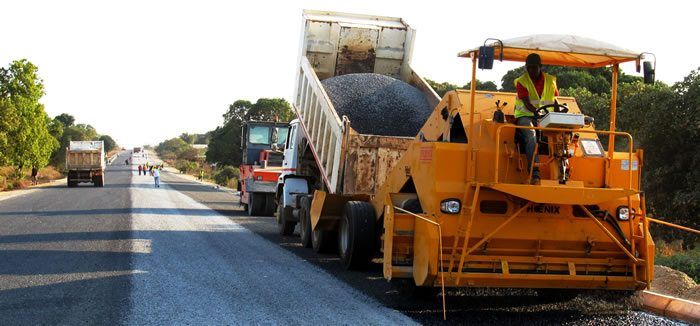Investment in infrastructure is at the core of South Africa’s economic recovery plan as the country slowly emerges from the effects of the Covid-19 pandemic.
Speaking during Sustainable Infrastructure Development Symposium of South Africa which he hosted in August, president Cyril Ramaphosa said that disruptions caused by COVID-19 globally and locally had exacerbated South Africa’s economic vulnerabilities and dimmed growth prospects.
“Growth is likely to fall by at least 7 percent in 2020, compared to an expectation of modest growth of around 1 percent before the pandemic struck,” he said.
He also cautioned South Africans to expect a long period of slow recovery even when interventions to stem the transmission of the virus are relaxed further.
For this reason, he said, South Africa was placing infrastructure at the centre of its economic recovery plan.
Even before the pandemic, South Africa’s investment in infrastructure had been declining for several years, which, among other things, had caused great hardship for the construction and related industries.
Coronavirus has had a particularly severe impact on infrastructure service providers both for projects under development and under implementation.
“Buyers of infrastructure services have delayed procurement of new projects or cancelled projects,” he observed.
South Africa hopes that by investing in infrastructure development, jobs will be created, people will earn incomes and essentially spur economic growth. The move will also get construction and related services companies back to work, inducing them to hire staff and expand capacity.
Priority will be given to fully developed for implementation projects to ensure that ground is broken as soon as possible.
It is an economic recovery plan that has been fronted by Rand Merchant Bank (RMB) chief executive James Formby who in May, called for South Africa to urgently start mobilising the Infrastructure Fund to boost the moribund economy.
South Africa’s economy has been struggling in recent years with major construction companies closing shop or filing for business rescue.
One such company is construction giant Group Five which in 2019 filed for bankruptcy protection putting over 8,000 jobs at risk. Several reasons were given for the fall of the company but a stagnant economy and lower government infrastructure spending was chief among them.
The future of Basil Read, another construction sector heavyweight uncertain after it went into business rescue in June 2018, shortly after reporting a net loss after tax of R1 billion for its 2017 financial year.
The enters Coronavirus that put the economy under complete shutdown.
South Africa’s sovereign credit rating had been downgraded to sub-investment grade by all three major credit rating agencies meaning it will be more expensive for the government to raise money on international markets.
And it is unclear whether domestic investors will rise to the occasion to boost South Africa’s economic recovery plan
Also Read
South Africa’s Perdekraal East Wind Farm gets locally manufactured transformer
Sidi Mansour wind farm boosts Tunisia renewable energy action plan 2030

